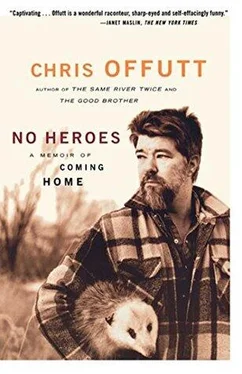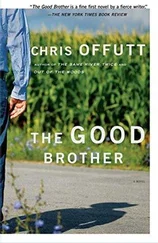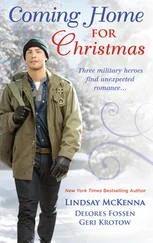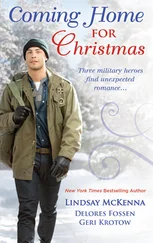The first I knew of trouble was the cessation of a guitar that I hadn’t even realized was playing until it stopped. Into that void of sound came an automobile heading our way. Most of us then had a terrible dread of cops, whom we regarded as bumbling fools bent on separating honest people from their drugs. That day I didn’t care. I wasn’t driving and my pockets held nothing illegal. I decided to remain on my back in the woods and move my arms among the leaves, trying to make an angel. The leaves didn’t pack right. As I pondered how to give them more weight, I became very cold.
I rose from the earth without moving a muscle. For a long time I examined my skin for goose bumps as a sign of impending chill. The more I looked, the more I saw marvelous beauty among the tiny chips of leaf that spangled my skin like broken gems. My arm was gorgeous. It belonged in a museum, encased within a Plexiglas box on a pedestal of gleaming mahogany. I began experimenting with my fingers, changing their position, seeking the ideal gesture for display. I recognized a momentary time lapse between thought and action. It was extremely quick, but according to my grandfather, nothing was quicker than a double-play, and I began wondering how quick a double-play actually was, while still admiring the astonishing grace of my forearm* feeling the wind against my face like the breath of God, when every sound for miles around was abruptly stopped by a gunshot.
I walked to the tree line and looked down the hill. A stranger lay on his back in the grass, his hand on a pistol. Above him stood June Bug holding a bigger pistol.
All creation seemed to hold itself in abeyance as if time had shifted into reverse, and was straining to catch up with what had not yet happened. The earth ceased its spin. Sunlight became solid in the sky. Fragments of the wind dropped to earth. A brilliant scarlet stain spread across the shirt of the man on the ground.
I don’t fully recall the rest of the night. The sun went down, and I headed west along the ridge. I walked ten miles through the woods toward what I hoped was More-head. The acid was cut with speed, which generated enough false energy that I made it to town. I awoke in the backseat of my car with my face marked by briars, my bad knee swollen from a fall, and bloody scabs on both elbows. I had never felt such thirst. I hurt everywhere.
Slowly and then in a terrible rush, I recalled the preceding day’s sequence of events. I wanted someone to steal the car and drive somewhere with me in it. I wanted more of everything but didn’t know how to get it. I didn’t feel desire so much as hunger. There was life beyond the hills but I was afraid to leave, and my cowardice made me ashamed.
In the ensuing months I quit doing drugs, and stopped hanging around with the old gang. Some people got mad, and others regarded me with suspicion. I tried to act like I didn’t care. I never saw June Bug again, though I occasionally ran into the boys who were at the Tunnel Cut that afternoon. No one ever mentioned the shooting. Maybe they were afraid to find out if I knew what had happened. Perhaps the acid interfered with their memory or perhaps I hallucinated the entire incident.
My reverie ended. I was sitting in my office, facing a blank wall. On the desk lay Eugene’s story. I read it again, making a few structural suggestions. He was a good writer and I had no idea what to tell him. Stay in point-of-view. Show don’t tell. Don’t do drugs. Keep away from guns. Stay in school. Always wear a condom. Avoid fried food. Don’t smoke cigarettes.
I knew couples who faced pregnancy in college, and few seemed happy about it. I was always grateful to have escaped the situation. If I had fathered a child then, he’d be Eugene’s age right now, and what I really wanted to tell him was very simple: Get the hell out of the hills.
Instead, two days later, after class, I returned his manuscript.
“It’s a good story,” I said. “Has a ring of truth, you know, funny then turns sad.”
“Like it could really happen?”
“Yeah. Did it?”
“Sort of. I heard about it.”
“How do you OD that fast, Eugene?”
“OxyContin comes in time-release capsules. You take them apart and smash up what’s inside, and that takes away the time-release part. When you snort it, it’s like ten Percocets.
“Where do they get it at?”
“Usually off their papaw or mamaw who’s bad sick.”
“Listen, Eugene, I hate to sound like some old man who knows better than you. But drugs are pretty bad.”
“I know they are.”
“Anymore, writing is like a drug to me.”
“I been writing in the woods,” he said, “but so far only poetry.”
“Good,” I said. “Poetry is the backbone of literature.”
“Mine sure ain’t. It’s more like the old busted-up ribs. I was thinking I ort to go deeper in the woods.”
“Maybe you should go deeper in your poetry.”
“Damn, buddy, you know all the right shit to say, don’t you.
“Only about writing, Eugene. Is everything all right up in Martin County with your family and all?”
“Pretty much. Except for my papaw being on cancer medicine.”
“Oh, man.”
“Just messing with you, Chris. I don’t take drugs.”
He began laughing and backed into the hallway.
“Your face,” he said. “You’re too easy, buddy.”
I laughed and watched him go, wondering if he was telling the truth. Then I wondered how many times teachers had pondered the same about me.
Arthur Faces Firing Squads
The groups working outside the camp were the main vehicles by which the black market existed. I was in one of those groups, and somebody said, if you get this linen out, you get paid for it. I walked out with those fine linens under my clothes.
We got stopped at the gate and they found the linens. They brought us back to the main assembly. Naturally we had to undress completely. Put all the goodies in front of us to prove that justice is done. All day long we waited in the cold so they can shoot us in front of everybody. This was just naturally what they did. We were standing there from eight in the morning until about four o’clock in the afternoon, and then somebody come by and said, put your clothes on and get out of here.
There was another time with the firing squad, in the main camp at Natzweiler-Struthof in France. Very famous camp for medical experiments on prisoners. We went there in a boxcar. Fifty-two men. Goodness gracious, very comfortable. Lie down, stand up, sit, whatever you want. We had straw and sawdust. They gave us water, they gave us bread, and they closed the car. And they had a hole so we had a potty. The windows were slits with bars in them at the top.
We had bread. I ate two pieces in the morning and two pieces at night. After a while, no more bread. Fourteen days on a boxcar and I am out of bread. I was more than a week without anything. Zero. Finally my neighbor, a gypsy, took a piece of bread, cut it in half, and gave it to me. That gypsy kept me alive. I never saw him again.
We got out of these boxcars at night. It was spring; it was gorgeous. It was the most beautiful night I ever saw. We came to that camp and everybody had to assemble. Just to show us they mean business, they go around and take people for the firing squad. No reason, no rhyme. They picked me and other people and put us in front of everybody. They start shooting. I’m closing my eyes. They stop shooting and I open them. They were shooting over our heads. They said, this should happen to you, you did something wrong.
The third time was in France in a camp. Nicagara, the most beautiful part of the valley. We had no food, so what the cooks used to do, they mowed the grass in front of the barracks and cooked that and fed us. Naturally we don’t want to eat grass. We throw it out. They said, look, we know that valuable food is thrown out, so if we find food thrown out, we gonna shoot every tenth one of you. We don’t want to have any people dying from hunger here.
Читать дальше












